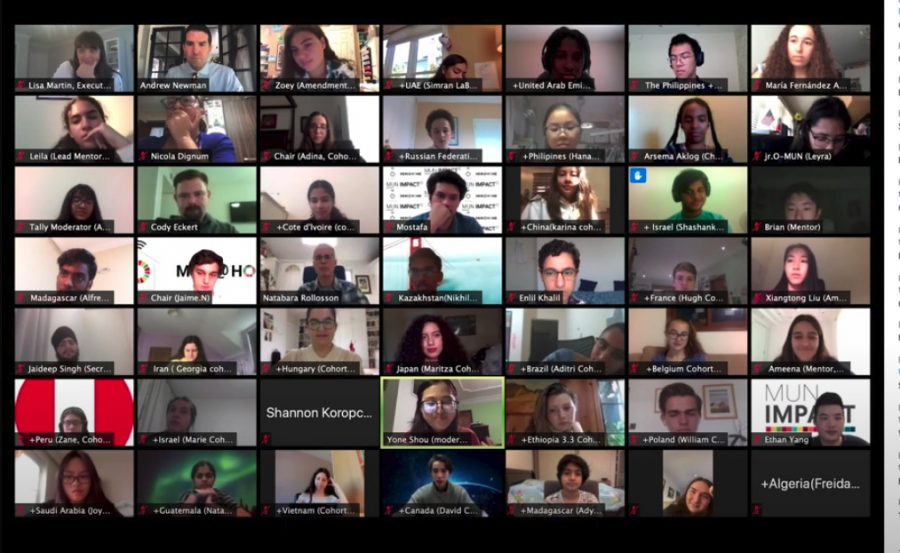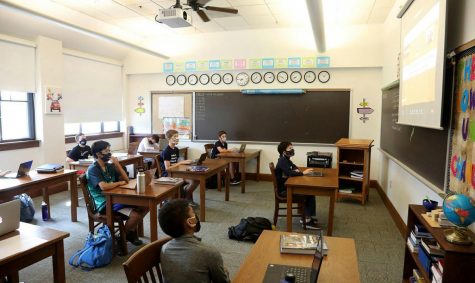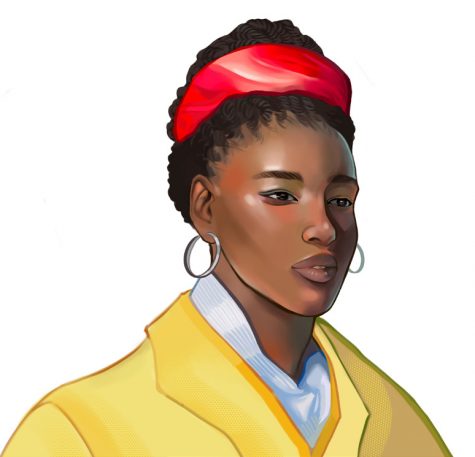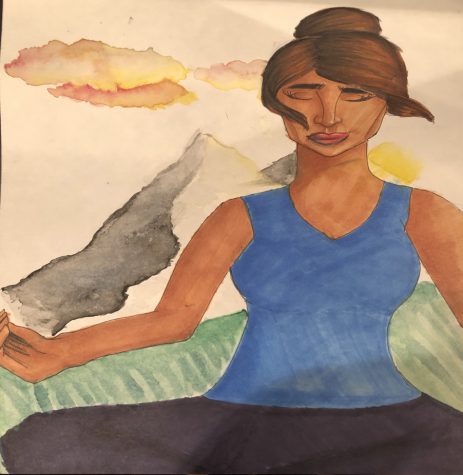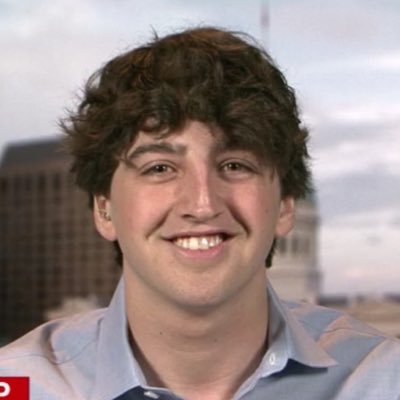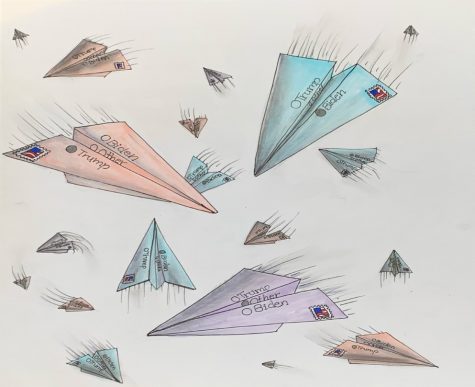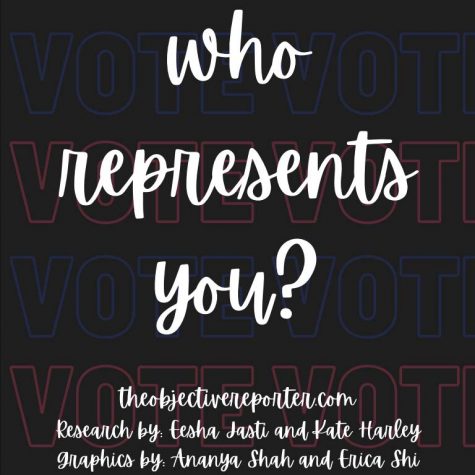MUN Goes Virtual
Model UN delegates from around the world participate in a debate on Zoom over the summer.
September 22, 2020
In an ordinary year, members of the Burroughs THIMUN team travel to Qatar or The Hague for their international Model United Nations conference. This year, however, has been anything but normal, and JBS’ Upper MUN Team has switched to online debates. Instead of one major conference at the end of January, the team will participate in several online debates hosted all across the world. On August 22nd, members of the debate team attended their first online conference, called KingsMUN, alongside other delegates from Kenya and Toronto. KingsMUN is an annual MUN conference hosted by King’s Christian Collegiate, a private high school located in Oakville, Ontario. The school has hosted MUN events since 2011, and their first online conference was held during the summer of 2020.
Every MUN conference must choose a topic of debate for delegates to research and discuss. After the death of George Floyd in May, social justice was on the minds of everyone at King’s, and the planning committee wanted to focus on Black, indigenous, and people of colors’ (BIPOC) lives and communities. In light of this, they decided to make August’s debate on the rights of indigenous peoples. The topic was appropriate for a debate that included delegates from the United States, Canada, and Kenya, as many nations across the world struggle to protect indigenous rights.
“We wanted to shed light on a worldwide perspective of this topic, in addition to that of our home countries. So the idea was proposed and we went with it!” said Serwaa Sekyi-Otu, a rising junior at King’s and the Under-Secretary-General of External Communications for their MUN program. In addition to the novelty of online debating, Burroughs delegates had to debate in the North American format, a completely foreign style from that of THIMUN. In this format, delegates begin with a scripted opening speech where they present their stance on the issue. From there, delegates dive into unmoderated and moderated caucus, and typically do not have a speech pre-written. Unlike SLAMUN and THIMUN conferences, there are no resolutions written and selected ahead of time. “I can say the use of a speaker’s list rather than coming in with a resolution and knowing you have a topic paper to give is very different…we’re writing a resolution from scratch,” says JBS MUN member Isa Rosario-Blake (‘21), who agreed that the new format created a very different flow from the usual THIMUN conference.
With a Chair from King’s guiding the conversation, the delegates dove into a discussion about the rights of indigenous people. The issue of mining on indigenous lands was a major topic, as many countries across the world struggle to balance economic growth with the ethics of destroying land that is sacred to those who have lived there for centuries. But because delegates researched in advance, they came prepared to propose solutions. Some delegates advocated for a national registry of indigenous lands or a quota of employment for indigenous people. Of course, opponents of these policies brought up the environmental issues connected with mining– does paying indigenous people to destroy their ancestral lands make mining more ethical? Different delegates, who are obligated to represent their nation authentically, had differing opinions.

After debate, delegates were split into two breakout rooms over Zoom, where they were tasked with writing a resolution together. Time was short, but delegates quickly typed out solutions. Many ideas written into the KingsMUN resolutions were based on policies that countries were implementing in the real world. The Delegate from Australia, for example, cited a program called the Indigenous Land Use Agreements and wrote a similar clause into his room’s resolution.
Because MUN has switched online, delegates from all over are able to come together and discuss important global issues. Though virtual debate was not what the heads of the JBS MUN program envisioned for this year, delegates on the JBS Upper MUN team have a unique opportunity to safely connect with students all over the world.
